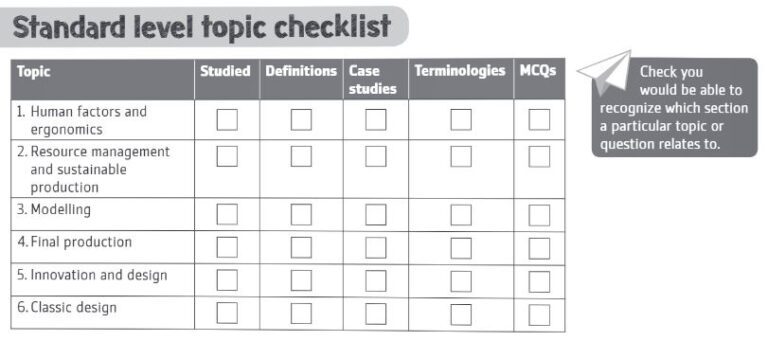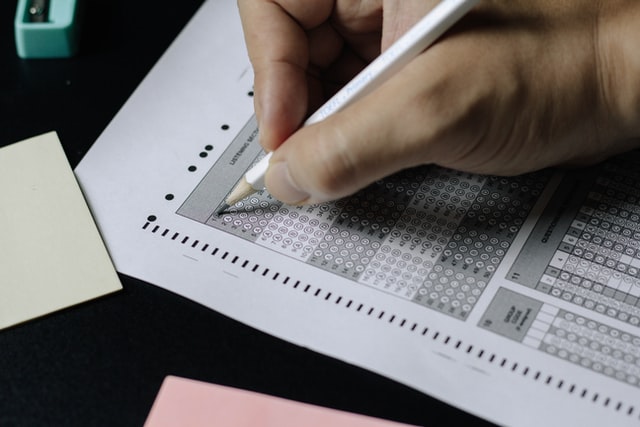May is exam month for a lot of you IB Diploma students and it is easy to feel overwhelmed, so we’ve gone through our Revise IB series of books to put together some handy tips to (hopefully!) help you feel prepared.
Days before your exam
Use a topic checklist (found at the front of our books or you can find them online) to check if there are any areas left you don’t feel confident about. This can help you identify topics that could benefit from some last revision. Don’t forget that for some subjects, this will include knowledge of case studies, real-world examples, areas of enquiries or theories, along with your factual knowledge on the subject!
Here is an example for Design technology (SL):

The night before your exam

Make sure you know what you need to bring into your exam. We have listed some general examples but every learning institution is different so always follow what your teacher tells you. The following items might be included: a clear bottle of water, black or blue pens, a pencil and a ruler (in a clear bag if you are bringing a pencil case). Do you need a calculator (some math and science exams) or headphones (music)? If you are allowed a bilingual dictionary, ensure you have that too.
Check you know what time you need to arrive and set any alarms up ready.
It can be tempting to stay up all night revising or watching a TV series to destress, but it is important to get a good night’s sleep before your exam. At a certain point, you have to believe that you have prepared enough and turn off the lights (and your brain) to get some rest.
The day of your exam
Try to stay calm and make sure you leave plenty of time to arrive at your exam. If you get there early you may have time for last-minute revision – but if you get there late, you will start the experience off flustered or may not even be allowed in.
Make sure you do not accidentally bring your phone or any notes into the exam room.
During your exam

- Sit comfortably, check where the clock is and take a deep breath.
- Allocate your time so you know (roughly) how long to spend on each question.
- Read the questions carefully. Don’t accidentally answer the wrong question because you misread a keyword.
- Underline the keywords if that helps you to focus on the question.
- Use the number of marks allocated to a question to estimate how long your answer should be.
- Don’t panic if you get stuck on a question. Try to make some notes to see if you remember the details as you write or move on and come back to it later.
- Towards the end of the exam, flick through to check you haven’t missed any questions and revisit any you were unsure about. If your paper is multiple choice, make sure you have answered every question even if you have to guess the answer.
- Use every minute to check your answers before your exam ends.
After your exam
When the time has run out and you’ve put your pen down, try not to think about your exam anymore. At this point, there is nothing else you can do about it so there is no need to exhaust yourself worrying. Instead, focus on your next goals – whether that’s your next exam, relaxing with friends or anything else!



